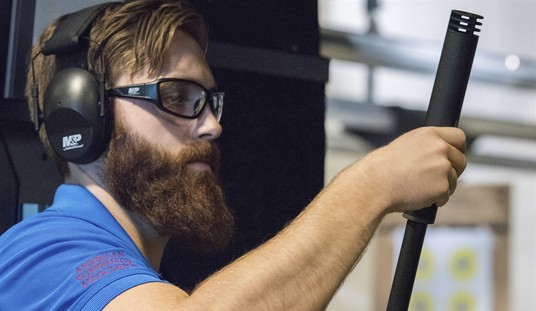The Milwaukee Journal Sentinel has a series of articles looking at guns. Cam touched on this earlier today, and you should go and read his piece on the series. It’s not what either of us expected.
There were enough stories we could have, theoretically, spend the next couple of days just commenting their pieces, but why bother? They stand on their own.
One, in particular, was different. It talks about mental health and a gun industry insider who is trying to do something about it.
He and his sales rep were in New Orleans for a gun show. They were having dinner with a woman they had met that night. The conversation turned to what they did.
“I’ve always wondered about something,” the woman asked [Mike] Sodini. “What is the conversation like in a gun business when there is a mass shooting or something else really bad happens with a gun?”
Sodini snapped off an often-used line: “We say, ‘The gun didn’t do it and untreated mental health is a big problem in this country.’ And we go back to work.”
“So, if you know what the solution is,” she asked, “how do you work with the mental health community?”
The simple question stopped Sodini cold.
He wasn’t talking to anyone in the mental health profession – and no one he knew in the gun industry was either.
This led to Sabini stepping out of the industry and founding an organization called Walk The Talk America, that tries to bridge the gap between mental health professionals and the gun community.
And, as a result, is probably doing some of the most important work out there.
First, the biggest aspect is that Walk The Talk America actually is trying to save lives. Take away the guns and people still have a ton of ways to kill themselves. Take away the desire to hurt one’s self or others and it doesn’t matter what methods are available.
That’s easily the most important aspect of what they do.
Yet there’s a flip side here, and that’s how this focus on mental health preserves the right to keep and bear arms.
Mentally ill people can and do commit horrible acts, even if they’re the only one physically impacted. Then gun control advocates use those acts, cynically lumping them in with homicides and accidents, calling them “gun deaths” and using those to justify restrictions on firearms that wouldn’t have stopped someone suffering from mental health problems.
If you reduce the number of suicides, you reduce the number of “gun deaths” without creating a single law.
And again, you also save these people’s lives.
What we need to see is more of this. We need to rally together and rally behind those of us who are suffering. We cannot allow the demonization or stigmatization of mental health issues to continue, particularly among gun owners, and we desperately need to step up and do what we can to help them recover.
Sabini made the right call, in my opinion, and I sincerely hope his efforts are as successful as he could hope.








Join the conversation as a VIP Member